Finding Somewhere to Sleep
Update: This article was written in 2011 during our first full year on the road. While this article isn’t incorrect, it’s probably out of date as we’ve since written many more articles about this topic. You can find them in our How To section.
Motorhomes are equipped to give you a great deal of flexibility in terms of where you can stay for the night. As long as you’re able to obtain fresh water, gas and to empty your black and grey waste, you can stay pretty much anywhere. Of course, there are limiting factors such as local laws, your own personal safety, you attitude to risk and the additional facilities you want access to. A few hints and tips follow on finding places to stay:
- There seems to be a basic hierarchy in sleeping places; the ‘risk’ assessment is purely subjective and will of course vary between places!
- Most expensive, best facilities, lowest risk: the good old campsite.
- Relatively inexpensive or free, medium risk, few facilities: aires
- Free, no facilities, highest risk: wildcamps
Campsites
In general these are the safest, most well equipped and the most expensive. They’re also relatively inflexible in that you have to find one that’s open, not full, accepts dogs, is in a place you like and so on. You can be looking at €30 a night or more in high season for a van with two adults, a dog and hook-up. Some campsites have an ‘aire’ attached (see below). This allows you to park up in or near to the campsite and use their facilities.
Advantages: hook-up’s usually available, which you’re likely to need to charge your leisure battery up. Hot showers with an unlimited supply of water: heaven (although we’ve found sites may restrict the hours hot water is available). They feel safe if there are other campers around. They’re totally legal; there is no risk of being shifted on by the police.
Disadvantages: The price; there are so many places you can stay for free, paying €20 or €30 a night is quite a high cost when you have months on the road. Also, you’re probably paying for facilities you won’t use if you don’t have children. Finding somewhere: campsites can be rammed full in season and closed as soon as the end of September. Campsite books which list sites as open are sometimes wrong, as are tourist information offices. Inflexibility: you have to arrive after lunch and perhaps leave by lunch or 2pm. You also have to converse with the staff, which can be difficult if you don’t speak the language.
Two good places to look for campsites:
Aires, Stellplatz
These are areas which have been designated by the local authorities for motorhomes to stay overnight. They have different names in different countries (stellplatz in Germany for example). They are generally car parks, but some are much nicer. They range in the facilities they offer from nothing all the way up to fresh water, hook-up, showers and toilets. Usually there’s a service point somewhere in the aire where you can fill up with water and so on. If they’re not free, then you either have to buys a token somewhere locally, or pay with cash or your credit card. Often the parking is free but not the services. Some service points have the water turned off in winter. Some allow you to buy electricity by the hour (or 55 minutes?) to just top your battery up.
We’ve used aires in France and Spain so far. The French aire system is amazing for people wanting to travel on a budget. Costs vary from free to about €10 a night in our experience. You can buy books on aires such as the Vicarious Books – All the Aires guides, or use the excellent www.campingcar-info.com database (we had an offline copy of this on our iPad – cost just a few €).
Advantages: low cost. Usually flexible and you can arrive and leave when you want. Basic services often available, sometimes including hook-up. They feel pretty safe, especially if there is at least one other van present. They can be in some great locations, right in the centre of towns and villages.
Disadvantages: Can be full in season. Not as pretty as campsites, and you have to use your van facilities (shower, loo etc). You can’t open your awning, put out chairs, have a BBQ etc (although sometimes the locals ignore this restriction we note).
France Passion
Obviously this one’s only available in France, although we’ve seen something similar starting to build up in parts of Spain. It’s a large collection of businesses, typically farms, vineyards and restaurants, which allow you to stay in their car park for free. You just buy the France Passion book and stick the sticker in your windscreen. Officially you should buy a new book each year but we’ve noted that the proprietors never check whether you have the sticker or the book at all, never mind which year it is. You can buy some of their produce if you like, but there’s usually no pressure to do so. We’ve had some great experiences with France Passion and can highly recommend it.
Advantages: Free to park up overnight. Opportunity to interact with the locals (we’ve always found them friendly and happy to put up with out dodgy French).
Disadvantages: No facilities (usually – we stopped at one place which had the best service point we’d ever seen). Usually remote as they’re at farms and so on (although this could be an advantage too).
Wild Camping
Last but not least, wild camps. This means you’re parked up and sleeping in an area which isn’t designated for overnighting. It can be pretty much anywhere from the side of the road, a laybye or a car park, for example. We’ve not done much of this so far, so have limited experience. Obviously, it’s free, but has the possible disadvantage of being illegal, depending on the country you’re in, resulting in a late night knock on the door from the local militia (this hasn’t happened to us yet, and from our research seems not to happen often if you choose your spot carefully). This all seems to be something of a grey area: we went to a tourist info place a couple of days ago who told us it was illegal to wild camp on the sea front, but the police turn a blind eye out of season (even though the police station was overlooking the area we asked about).
Also, there is a distinction between wild, and free camping. In the former, you park up but don’t put anything outside your van – you don’t open the step, awning, put anything out to dry, no chairs, table etc. This is often tolerated we find. However, it seems that if you do put things outside the van, you’re more likely to attract trouble (we’ve not tried this so can’t give a qualified view).
Advantages: free. Can be in some awesome locations (last night we wild camped looking down over a huge, mist-filled gorge with a several hundred foot water fall lulling us to sleep). Flexible: you just pull up and park.
Disadvantages: might be illegal. Depending on the country, season, local view on campervans and your location, this might be enforced and you’d have to move on or stay awake all night. No services: you have to ensure you have fresh water, space in your grey water tank, topped up leisure battery, space in the loo cassette etc.

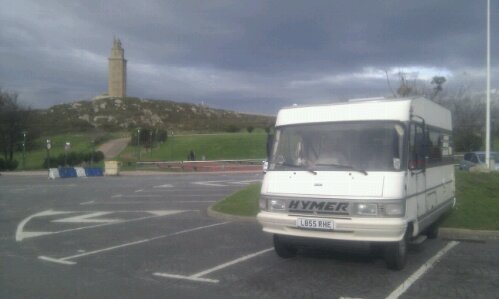
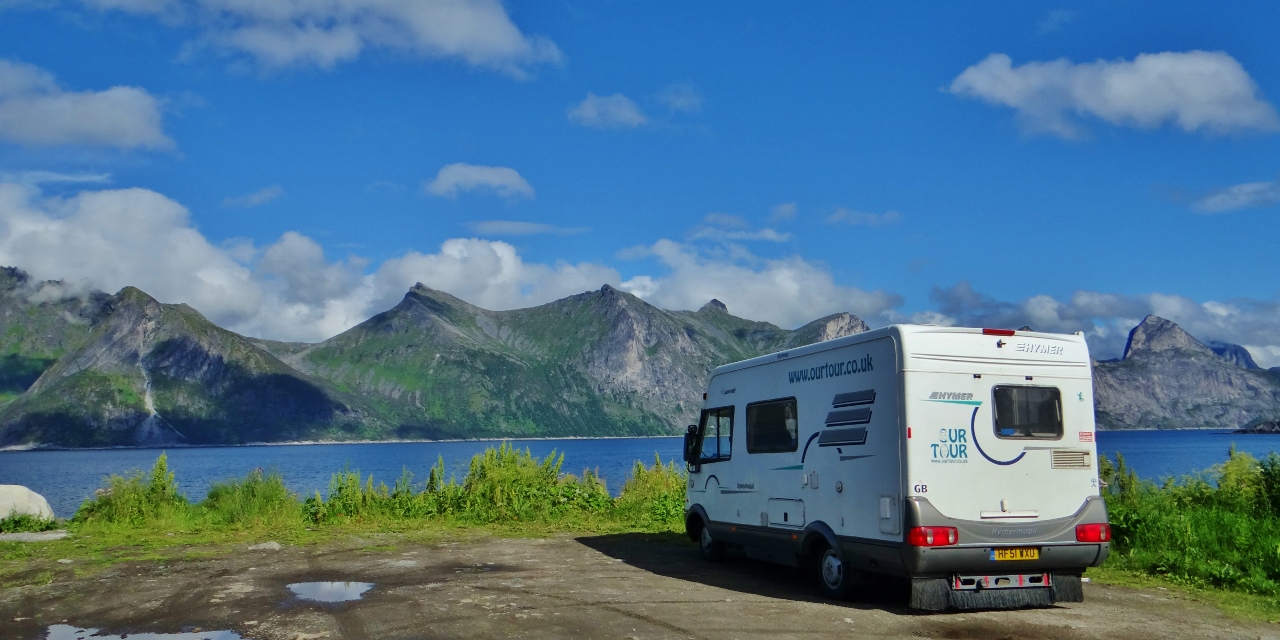
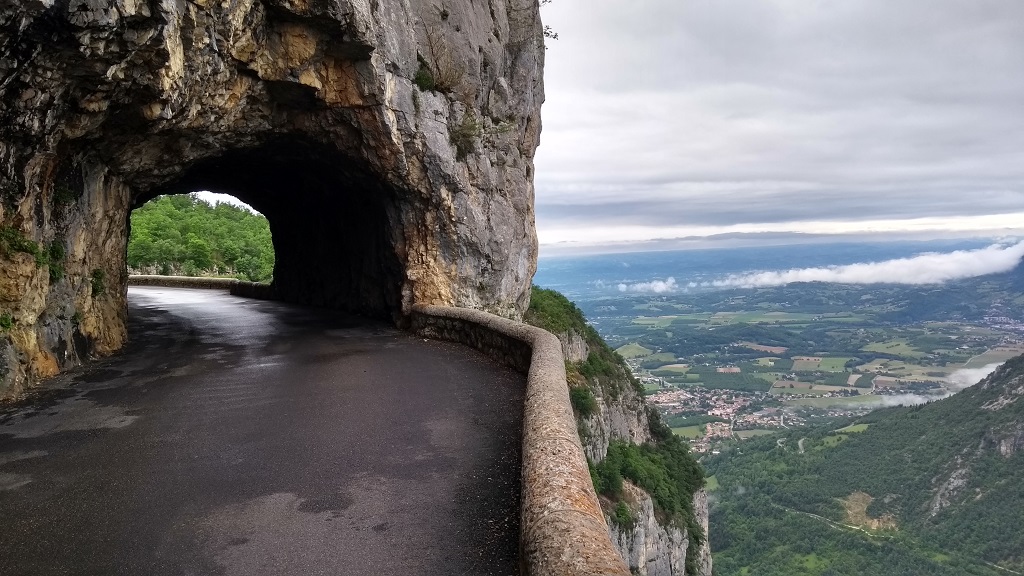
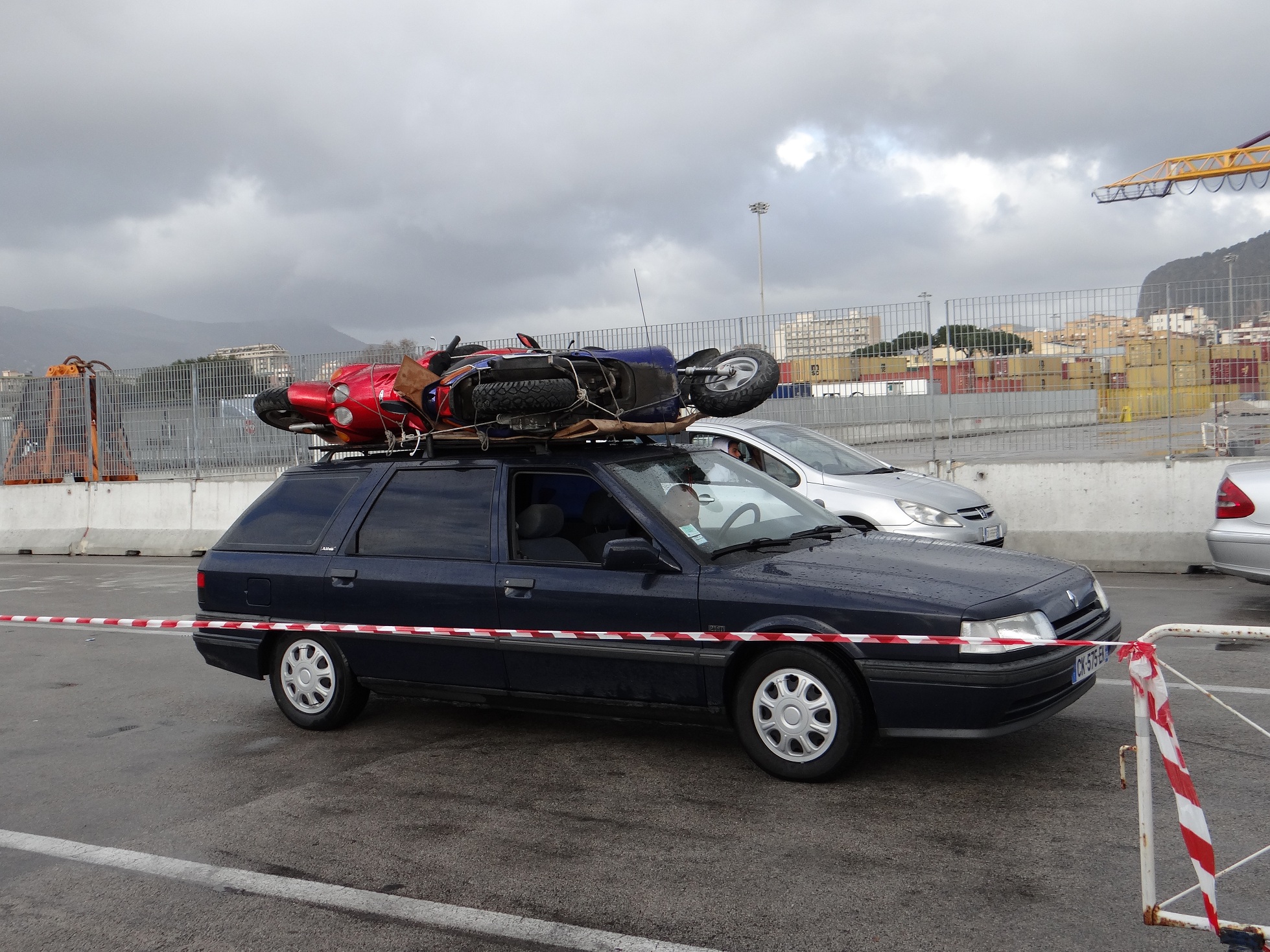
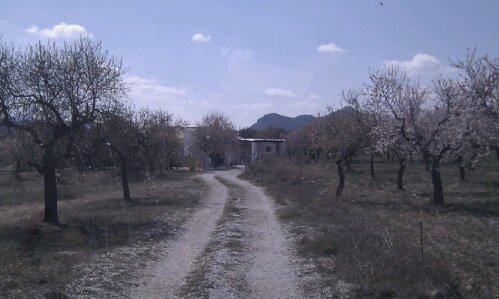
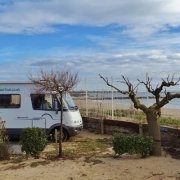
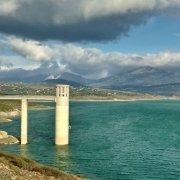

My husband and I are thinking about doing just this….. going off around Europe in a motorhome for a year or so. Thanks for all the advice, has definitely got me excited.